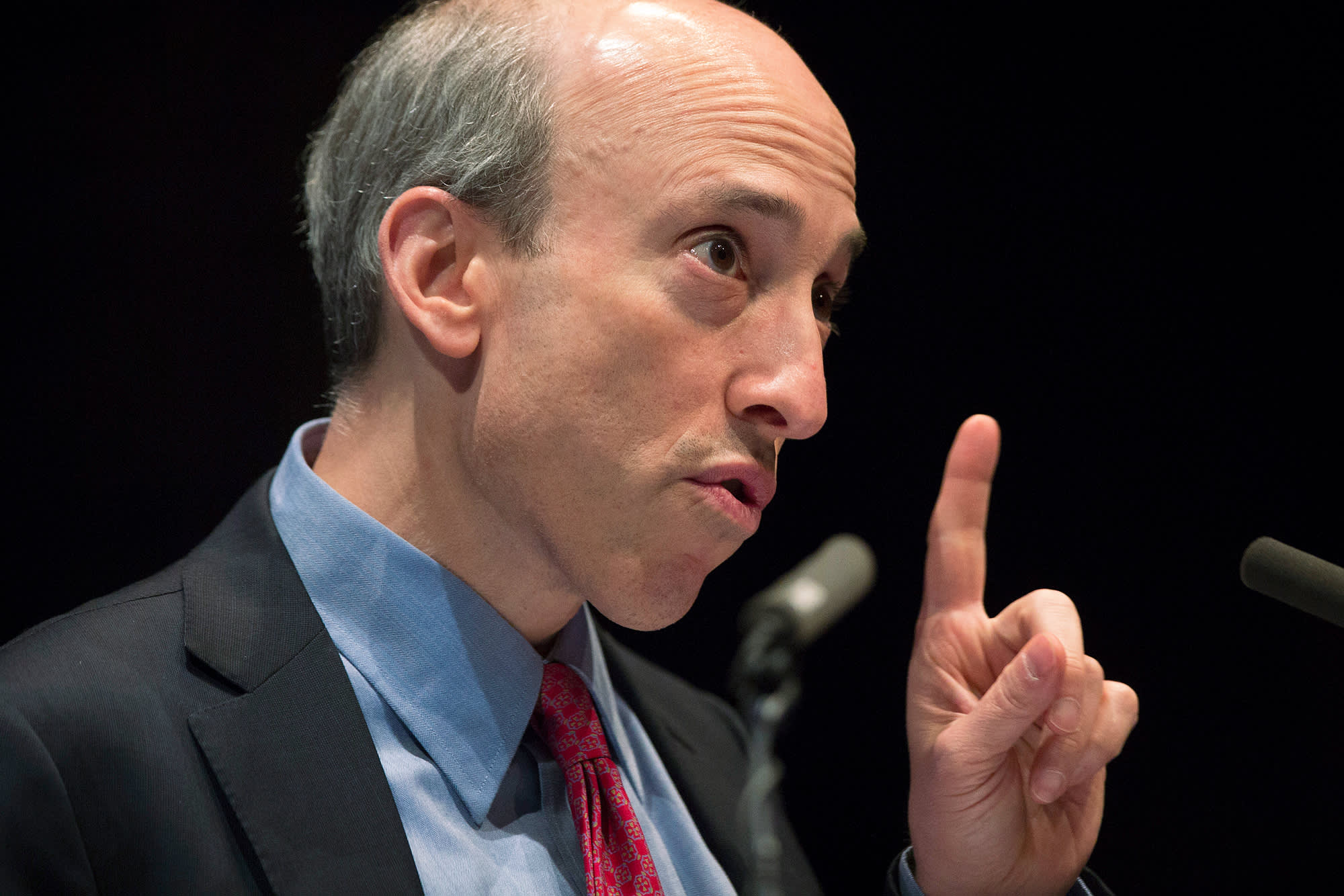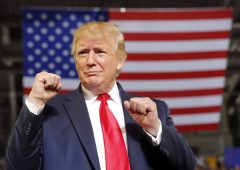Goodbye Gary Gensler – Donald Trump Vows to Overhaul SEC if Elected
28.07.2024 0:09 1 min. read Alexander Stefanov
The atmosphere at the Bitcoin conference is electric, especially following Donald Trump's statements about removing SEC Chair Gary Gensler, which were met with loud applause from the Bitcoin community.
Speaking at the Nashville Bitcoin conference, Trump declared that he would remove Gary Gensler and install a new SEC Chair on his first day in office.
He emphasized that once inaugurated, the persecution would end, and the weaponization against the Bitcoin industry would stop. Trump assured the audience that he would appoint an SEC chair who supports America’s future-building rather than obstructing it.
The former president also mentioned that if he wins the election, he plans to form a Bitcoin and Crypto presidential council to ensure transparency in the sector. He expressed confidence in the potential for a thriving industry.
READ MORE:

The US Will be The Crypto Capital of The Planet And The World’s Bitcoin Superpower – Donald Trump
Additionally, Trump discussed his plans for balancing electricity supply and demand. He stated that the country would construct power plants and utilize fossil fuels in an environmentally responsible manner.
He highlighted the importance of taking this step to prevent China and other nations from leading in this area. Trump concluded by saying that if crypto is to shape the future, it should be mined, minted, and made in the USA.
-
1
Trump Imposes 50% Tariff on Brazil: Political Tensions and Censorship at the Center
10.07.2025 7:00 2 min. read -
2
Key Crypto Events to Watch in the Next Months
20.07.2025 22:00 2 min. read -
3
USA Imposes Tariffs on Multiple Countries: How the Crypto Market Could React
08.07.2025 8:30 2 min. read -
4
UAE Regulators Dismiss Toncoin Residency Rumors
07.07.2025 11:12 2 min. read -
5
Ripple Selects BNY Mellon as Custodian for RLUSD Stablecoin Reserves
09.07.2025 15:28 2 min. read
Two Upcoming Decisions Could Shake Crypto Markets This Week
The final days of July could bring critical developments that reshape investor sentiment and influence the next leg of the crypto market’s trend.
Winklevoss Slams JPMorgan for Blocking Gemini’s Banking Access
Tyler Winklevoss, co-founder of crypto exchange Gemini, has accused JPMorgan of retaliating against the platform by freezing its effort to restore banking services.
Robert Kiyosaki Warns: ETFs Aren’t The Real Thing
Renowned author and financial educator Robert Kiyosaki has issued a word of caution to everyday investors relying too heavily on exchange-traded funds (ETFs).
Bitwise CIO: The Four-Year Crypto Cycle is Breaking Down
The classic four-year crypto market cycle—long driven by Bitcoin halvings and boom-bust investor behavior—is losing relevance, according to Bitwise CIO Matt Hougan.
-
1
Trump Imposes 50% Tariff on Brazil: Political Tensions and Censorship at the Center
10.07.2025 7:00 2 min. read -
2
Key Crypto Events to Watch in the Next Months
20.07.2025 22:00 2 min. read -
3
USA Imposes Tariffs on Multiple Countries: How the Crypto Market Could React
08.07.2025 8:30 2 min. read -
4
UAE Regulators Dismiss Toncoin Residency Rumors
07.07.2025 11:12 2 min. read -
5
Ripple Selects BNY Mellon as Custodian for RLUSD Stablecoin Reserves
09.07.2025 15:28 2 min. read

